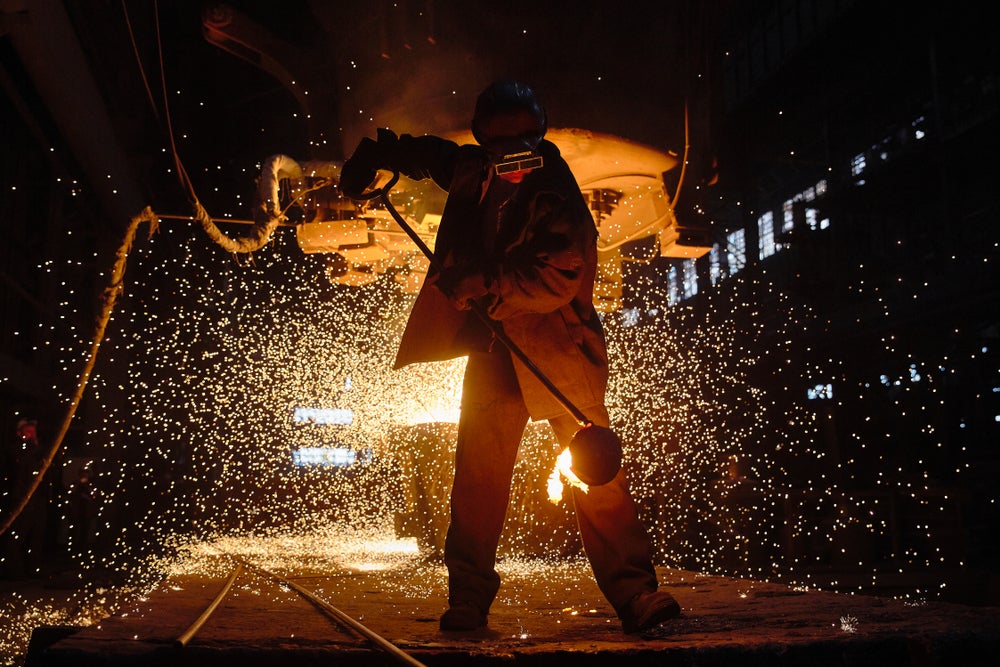
Rio Tinto and POSCO have signed a Memorandum of Understanding (MoU) to jointly develop low-carbon steel technologies.
The move will see Rio, Australia’s second-largest miner, collaborate with South Korea’s biggest steel producer to explore, develop and demonstrate technologies that will enable the transition to a low-carbon emission steel value chain.
The partnership will explore a range of technologies for decarbonisation across the entire steel value chain from iron ore mining to steelmaking, including integrating Rio Tinto’s iron ore processing technology and POSCO’s steelmaking technology.
“This partnership with POSCO, a valued and long-standing customer, demonstrates our combined commitment to working together to identify ways to reduce emissions across the steelmaking process,” said Alf Barrios, Rio Tinto’s chief commercial officer.
“The agreement also complements Rio Tinto‘s partnerships with other customers as the industry focuses on developing technologies that support the transition to a low-carbon economy.”
Rio Tinto and POSCO both targeting net-zero emissions by 2050
Rio said the MoU with POSCO underlines its commitment to working in partnerships with customers on steel decarbonisation pathways and to invest in technologies that could deliver reductions in steelmaking carbon intensity of at least 30% from 2030 or with the potential to deliver carbon-neutral steelmaking pathways by 2050.
Both companies share the ambition to reach net-zero carbon emissions by 2050 as part of the global efforts to limit the impacts of climate change.
As one of South Korea’s largest industrial firms, POSCO’s efforts to decarbonise will play an important role in achieving the country’s ambition to become carbon neutral by 2050 – a target that has inspired Korean companies to accelerate their decarbonisation activities.
“Tackling climate change is a critical item in achieving sustainable development for a better future,” said Hag-Dong Kim, POSCO’s head of steel business unit.
“On the journey to achieving carbon neutrality with Rio Tinto, we can play an important role of finding a way to build a low-carbon steel industry.”






